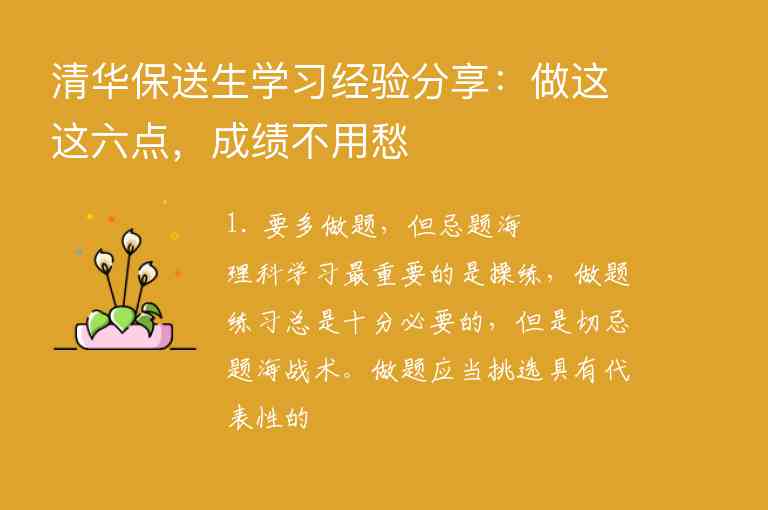意思是指对某件事物或概念的理解、感受或体验。在词典中,体会通常被解释为“理解”、“感受”、“领会”等含义。
怎么读(音标)
[ tǐ huì ]
用法
体会作为动词,常用于“体会到”、“体会某事物”等表达方式,表示对某件事物的感受和理解。也可以作为名词使用,表示对某件事物的理解、感受或体验。
例句1-5句且中英对照
1. I can't fully understand your feelings, but I can try to empathize and imagine what you are going through.
我无法完全理解你的感受,但我可以尝试共情并想象你正在经历什么。
2. It took me a while to grasp the concept, but after some thinking, I finally understood it.
我花了一些时间才能掌握这个概念,但经过一些思考,我终于明白了。
3. The teacher asked the students to share their thoughts and experiences on the ic, in order to deepen their understanding.
老师要求学生们分享他们对这个话题的想法和体验,以加深他们的理解。
4. She could feel her heart racing and her palms sweating as she stood on the stage for the first time.
当她第一次站在舞台上时,她能感觉到自己的心跳加快,手掌出汗。
5. Through traveling and experiencing different cultures, I have gained a deeper appreciation for diversity.
通过旅行和体验不同的文化,我对多样性有了更深刻的欣赏。
同义词及用法
1. 理解(understand):指通过思考、学习等方式掌握某件事物的意义或内涵。
2. 领会(comprehend):指通过感知、领悟等方式掌握某件事物的含义或内涵。
3. 感受(feel):指通过身体感官或心理感受来认识某件事物。
4. 了解(know):指对某件事物有所认识或知晓。
5. 理会(grasp):指通过思考和理解来掌握某件事物的含义。
编辑总结
“体会”作为一个常用词汇,具有丰富的含义和用法。它可以表示对某件事物的理解、感受和体验,也可以作为动词或名词使用。在写作中,我们可以根据语境选择合适的同义词来替换“体会”,从而丰富文章表达。同时,在使用“体会”时也要注意语态和时态的正确运用,以避免造成歧义。

